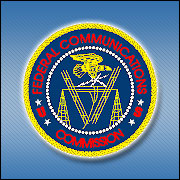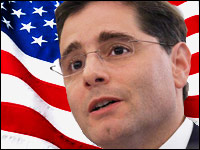
FCC Chairman Julius Genachowski announced his third attempt at gaining acceptance for Internet neutrality last week, sparking yet another furor over the issue.
This time, he’s proposing a narrower approach toward reclassifying broadband access services as telecommunications services, in the hope that this might win over the industry.
However, some industry bodies immediately went on the offensive, criticizing the revised plan, while Google, Amazon.com, Skype and other companies that would benefit from Net neutrality expressed their support.
What’s the Buzz?
The basis of the FCC’s general broadband plan is to provide broadband Internet access to more Americans, in part by limiting the ability of Internet service providers (ISPs) to restrict the amount of bandwidth users consume, and by barring them from showing preference to their own traffic or to traffic generated by users who pay a premium for bandwidth.
In other words, you’ll be allowed to download or upload huge files although you only pay the same rate as everyone else.
The FCC’s argument is that this will help further its National Broadband Plan.
“This approach would allow the commission to move forward on broadband initiatives that are vital for global competitiveness and job creation, even as it explores with Congress and stakeholders the possibility of legislative clarification of the Communications Act,” Genachowski said.
Plan Fans
A group of 13 companies calling itself “The Open Internet Coalition” wrote a letter to Genachowski Thursday in support of the latest FCC proposal.
“As Internet and technology companies, we strongly support the deployment of better and faster broadband transmission services as quickly as possible,” the OIC wrote. “Broadband serves as the critical ‘on-ramp’ for consumers to access the full richness of the Internet.”
Google, eBay, Amazon.com, Netflix and Skype are among the coalition’s members. All of these companies, of course, would benefit from equal and more prolific Internet access.
Some opponents of net neutrality, however, argue that it will prevent ISPs from clamping down on bandwidth hogs. Not true, Aparna Sridhar, a policy counsel at Freepress.net, told the E-Commerce Times.
“Organizations like ours and others that support network neutrality are not opposed per se to throttling a particular [user] because he’s hogging bandwidth,” Sridhar explained. “There’s a difference between that and deciding which application is taking up too much bandwidth on the network.”
Opposition to the FCC Plan
Some industry groups are not happy with the plan, just as they were dissatisfied with the first two proposals put forth by the FCC.
“While we are disappointed with the Title II Net neutrality announcement [Thursday], CTIA will continue to work to educate policymakers, including the FCC, on why net neutrality rules should not apply to wireless,” said Steve Largent, president and CEO of CTIA, in response to Genachowski’s latest plan.
Other industry members, including the Telecommunications Industry Association, AT&T, Comcast and the National Cable & Telecommunication Association (NCTA) all criticized the FCC’s latest plan.
“We firmly believe that the case for new regulation of the Internet has not been made,” said NCTA President and CEO Kyle McSlarrow. There are many legal uncertainties in the new plan, he claimed. Further, McSlarrow pointed out that broadband services are information services, not telecommunication services that are “regulated under a model designed for a previous era and for very different services.”
Why Some Don’t Buy the FCC’s Idea
What’s wrong with the FCC’s argument that ISPs and other broadband service providers shouldn’t restrict bandwidth consumption? It would help provide universal broadband access to the Internet, wouldn’t it? Perhaps, but critics of the plan say the provision of universal broadband access or any other universal service is the job of the government, in this case the federal government. ISPs are private companies set up to provide services for a fee.
“The ISPs are providing access to the Internet, and it seems to be they should be able to charge whatever they want,” William H. Venema, an attorney at Epstein Becker Green, told the E-Commerce Times.
Last month, a federal court ruled that the FCC hasn’t sufficiently proven it has the authority to force ISPs to keep their networks open to all forms of content. That was the resolution of a lawsuit Comcast brought against the FCC over the concept of Net neutrality.
The FCC had taken sanctions against Comcast in 2008 on the grounds that the service provider had improperly slowed traffic among users of BitTorrent file-sharing technology. In essence, the ruling means Comcast can regulate high-speed Internet traffic over its own system and that it doesn’t have to open its network to competitors.
The FCC wasn’t thrilled with the decision. “The Comcast decision has created a serious problem” Genachowski said Thursday. “The issues presented by the Comcast decision are a test of whether Washington can work — whether we can avoid straw-man arguments and the descent into hyperbole that too often substitute for genuine engagement.”
Hey, Big Brother
Lots more horse trading and, possibly, more lawsuits, may be on the way over the issue of Net neutrality, and there’s no clear answer as to which side may prevail.
The dilemma is perhaps best summed up in Genachowski’s statement Thursday: “Heavy-handed prescriptive regulation can chill investment and innovation, and a do-nothing approach can leave consumers unprotected and competition unpromoted, which itself would ultimately lead to reduced investment and innovation,” he wrote.
Freepress.net contends more government control over telecommunications providers is needed.
“They have been operating in a vacuum of government oversight,” Sridhar claimed. “This policy of the FCC would establish the basic rules of the road which they would prefer not to abide by.”























































Social Media
See all Social Media